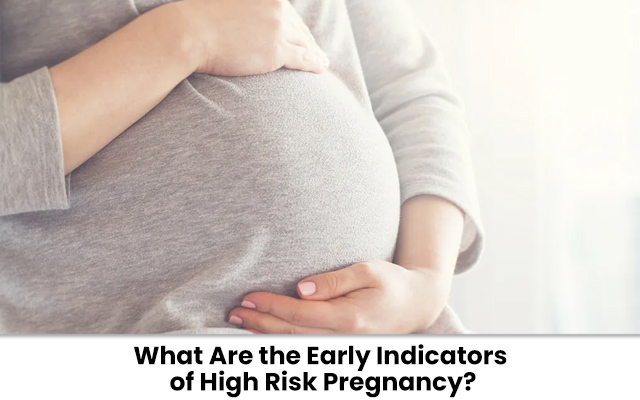High-risk pregnancies can occur for various reasons and may require extra care to protect both mother and baby. Understanding the high risk pregnancy signs early can help ensure you receive the right support and medical attention throughout your pregnancy. Here are some indicators to watch out for:
Chronic Health Conditions
Certain pre-existing health conditions can make a pregnancy high-risk. If you have diabetes, hypertension, heart disease, or autoimmune disorders, it’s important to consult with your gynecologist early on. These conditions can complicate pregnancy by impacting both fetal development and the health of the mother. Managing these conditions is key to minimizing high risk pregnancy signs and ensuring the best possible outcome.
Advanced Maternal Age or Teenage Pregnancy
Pregnancy after age 35 or during teenage years is associated with higher risks. Women over 35 may experience higher rates of chromosomal abnormalities, while teenage mothers face risks due to their bodies not being fully mature. Both age groups may face an increased likelihood of complications such as high blood pressure, preterm labor, and low birth weight. Regular check-ups can help detect any potential high risk pregnancy signs early.
Multiple Pregnancy (Twins, Triplets, etc.)
Carrying multiples can be more challenging for the body. Twin or triplet pregnancies have a higher chance of preterm labor, gestational diabetes, and preeclampsia. Frequent ultrasounds and monitoring help to track the baby’s development and the mother’s health. Multiple pregnancies often require extra diagnostic tests to monitor potential high risk pregnancy signs and keep both the mother and babies healthy.
Preeclampsia and High Blood Pressure
Preeclampsia, marked by high blood pressure and protein in the urine, can be a serious risk for both mother and baby. High blood pressure restricts blood flow to the placenta, potentially leading to low birth weight and other complications. If you have high blood pressure or a history of preeclampsia, early and regular prenatal care is crucial for managing these high risk pregnancy signs.
Previous Pregnancy Complications
If you’ve experienced complications in a previous pregnancy, such as preterm labor, miscarriage, or low birth weight, you may have a higher risk of complications in future pregnancies. Keeping your doctor informed about any prior complications can help in monitoring potential high risk pregnancy signs early on, ensuring you receive the best care throughout your journey.
Infections and Chronic Infections
Certain infections like HIV, hepatitis, and sexually transmitted infections can increase pregnancy risks. These infections can sometimes be passed to the baby during pregnancy or delivery. Regular screenings and appropriate treatments are vital for minimizing risks to both mother and baby.
Lifestyle Factors
Lifestyle choices can also contribute to pregnancy risks. Smoking, excessive alcohol consumption, or drug use are known risk factors that can affect fetal health. Discussing any lifestyle changes with your gynecologist can be a crucial step in preventing high-risk situations.
Conclusion
Being aware of high risk pregnancy signs and staying in close contact with your gynecologist can make a big difference. Early detection and consistent prenatal care help manage these risks, giving you the best chance for a safe, healthy pregnancy. If you’re facing any of these risk factors, don’t hesitate to reach out to a specialist in high-risk pregnancies for personalized guidance and support.

